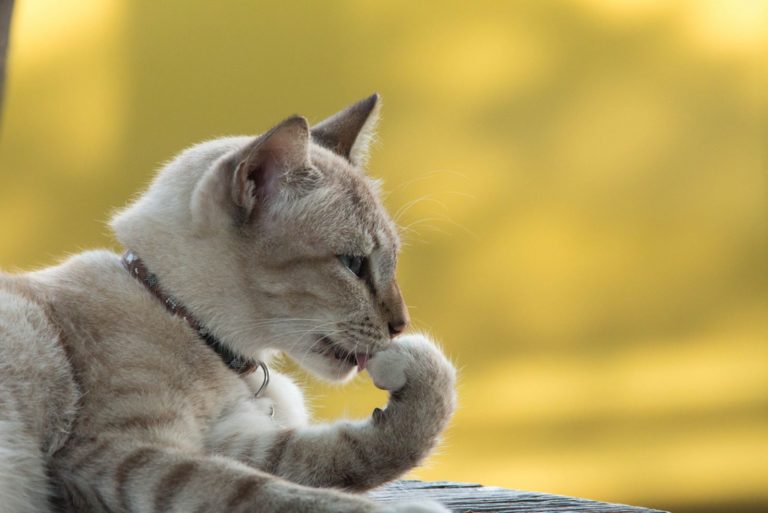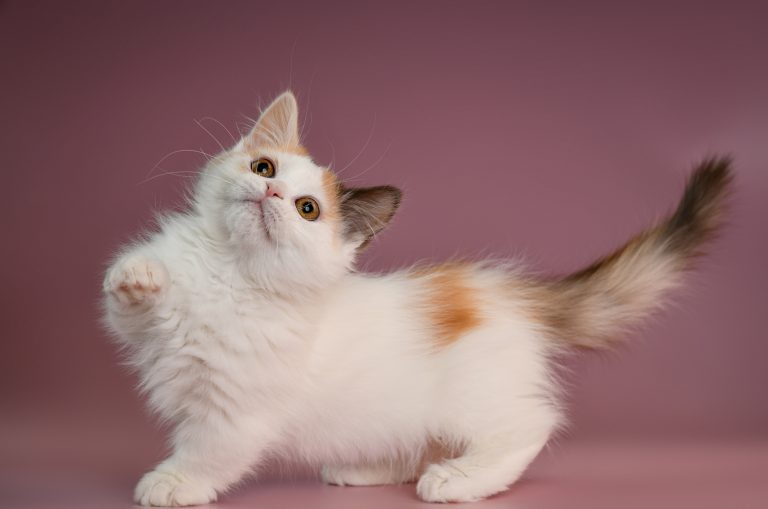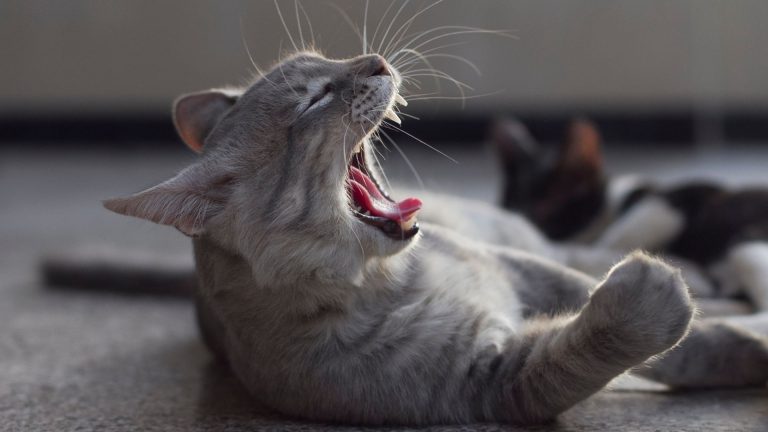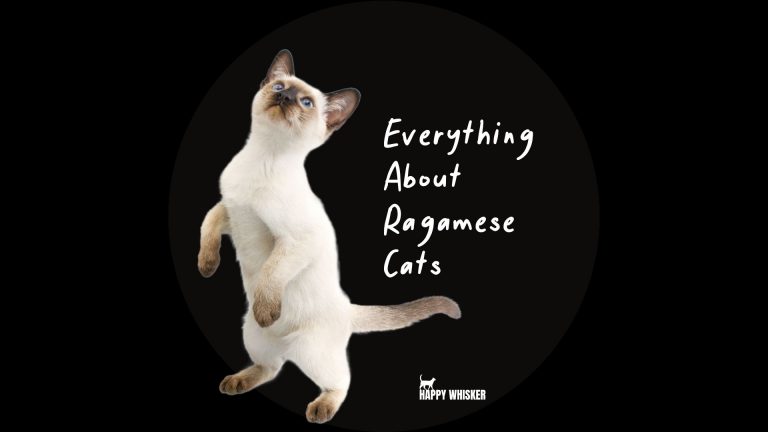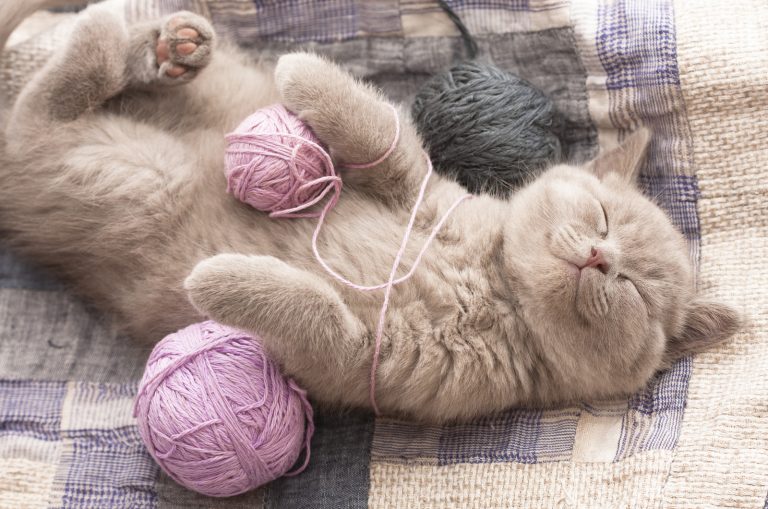Why Do Cats Chatter While Looking Out The Window?
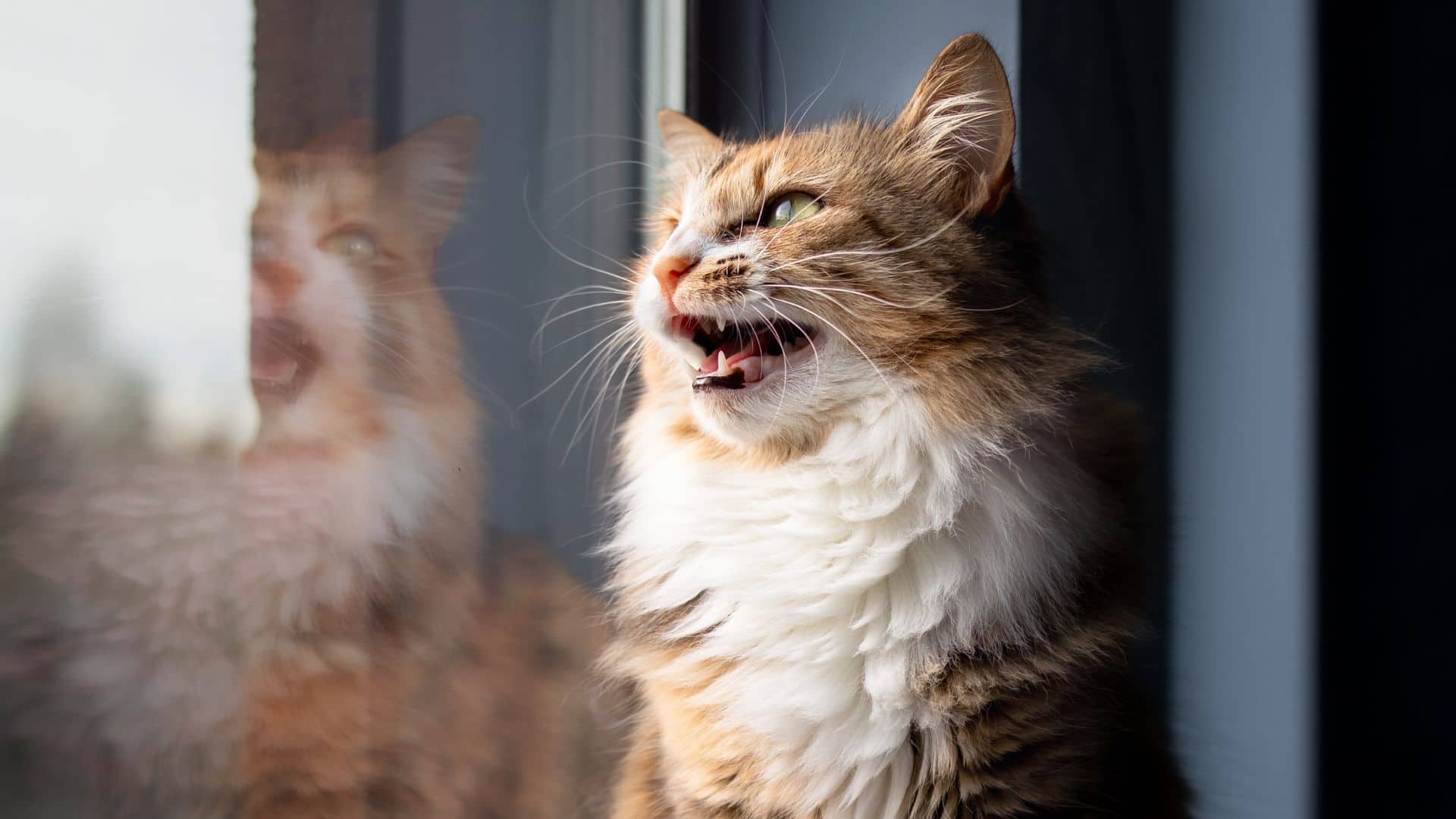
You might have noticed your cat looking at the window and making a strange sound repeatedly. If the kitty is watching birds while making it, the sound you’re hearing is most likely cat chatter.
Understanding feline language and behavior can be tricky, especially for new cat owners. However, it is possible!
In this article, I will cover what chattering is, why do cats chatter, and if it’s something you need to be worried about, so make sure to read on.
What Is Chattering, And Why Do Cats Chatter?
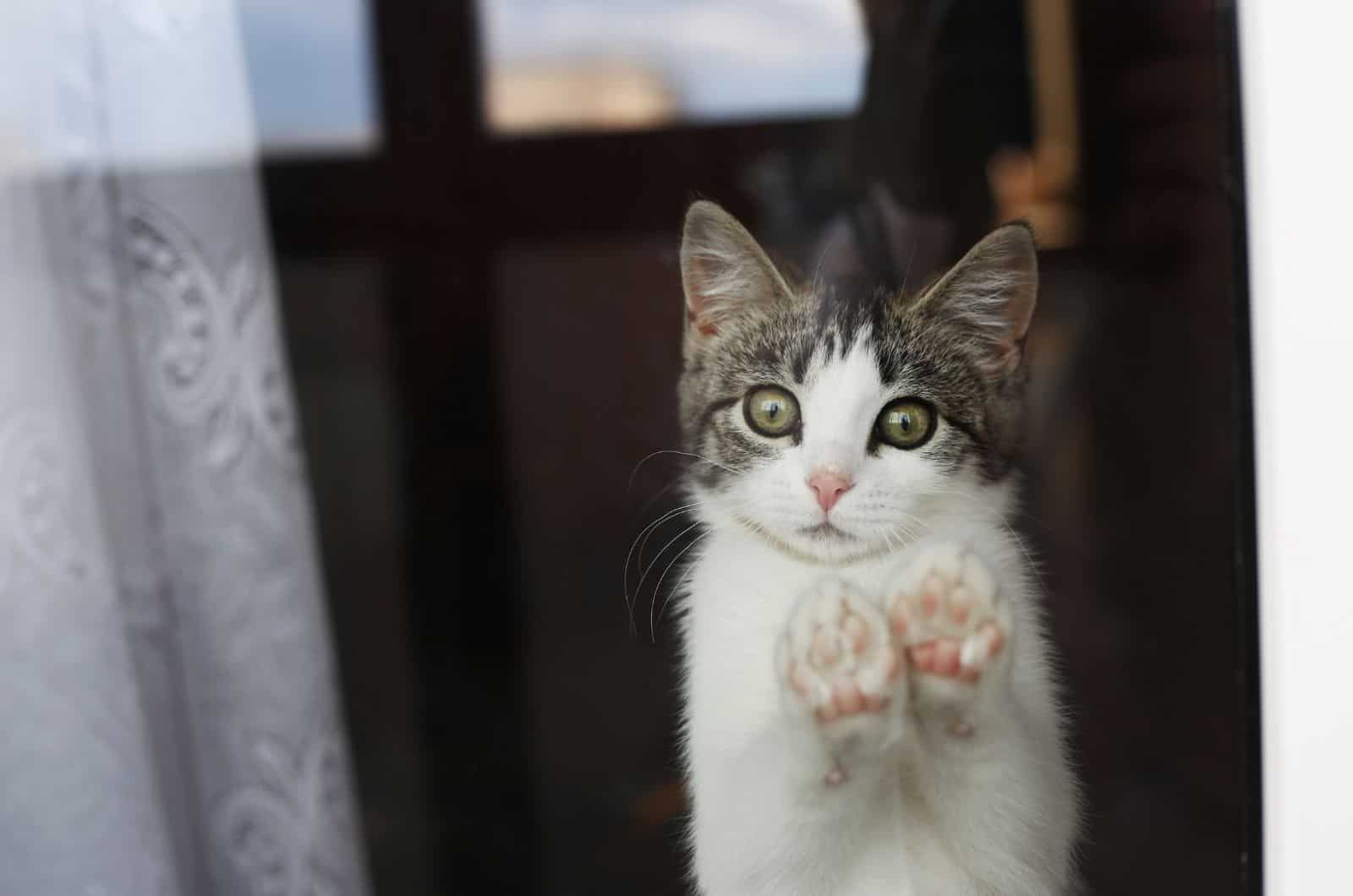
Chattering is a sound created when cats open and close their jaws very quickly. You might have noticed cats make it when they sit at the window and gaze at the birds and squirrels outside.
Cat chattering (also known as chittering or twittering) almost always occurs when visual stimuli, such as a moving bird, mouse, or squirrel, stimulate a cat.
The cat’s hunting instincts are kicking in at that time, and you may also observe the cat’s demeanor change. You might notice the cat’s pupils dilate, eyes enlarge, and ears lean forward. The cat’s entire body and mind are focused on the thing the cat’s looking at.
Why Do Cats Chatter While Looking Out The Window?
It must be noted that chattering is an instinctive response! Many people forget our cuddly domestic cats are, in fact, one of the most efficient predators out there. Therefore, a cat being focused on prey should come as no surprise!
Chattering is most commonly observed when cats look out the window and there are birds or squirrels in the yard. Small birds and squirrels are prey for cats, and chattering is a reaction to prey.
If you’ve never seen your feline chattering at the window, check out this video of three beautiful Maine Coons looking at the birds and chattering!
Why Do Cats Chatter When They See Prey?
Now that you know chattering is a reaction to prey, you might be wondering why exactly chattering is a natural response for a cat. The answer is straightforward – it’s the cat’s instinct, and this reaction is a matter of simple biology.
Chattering might be produced by neurotransmitters like dopamine and the hormone cortisol/adrenaline, which is released into the system when a cat sees prey.
However, when talking about indoor cats who cannot get to the prey, there are two aspects we need to look into – excitement and frustration, and I’ll briefly also mention two interesting theories about why cats chatter.
Now, what causes our felines to chatter?
Excitement
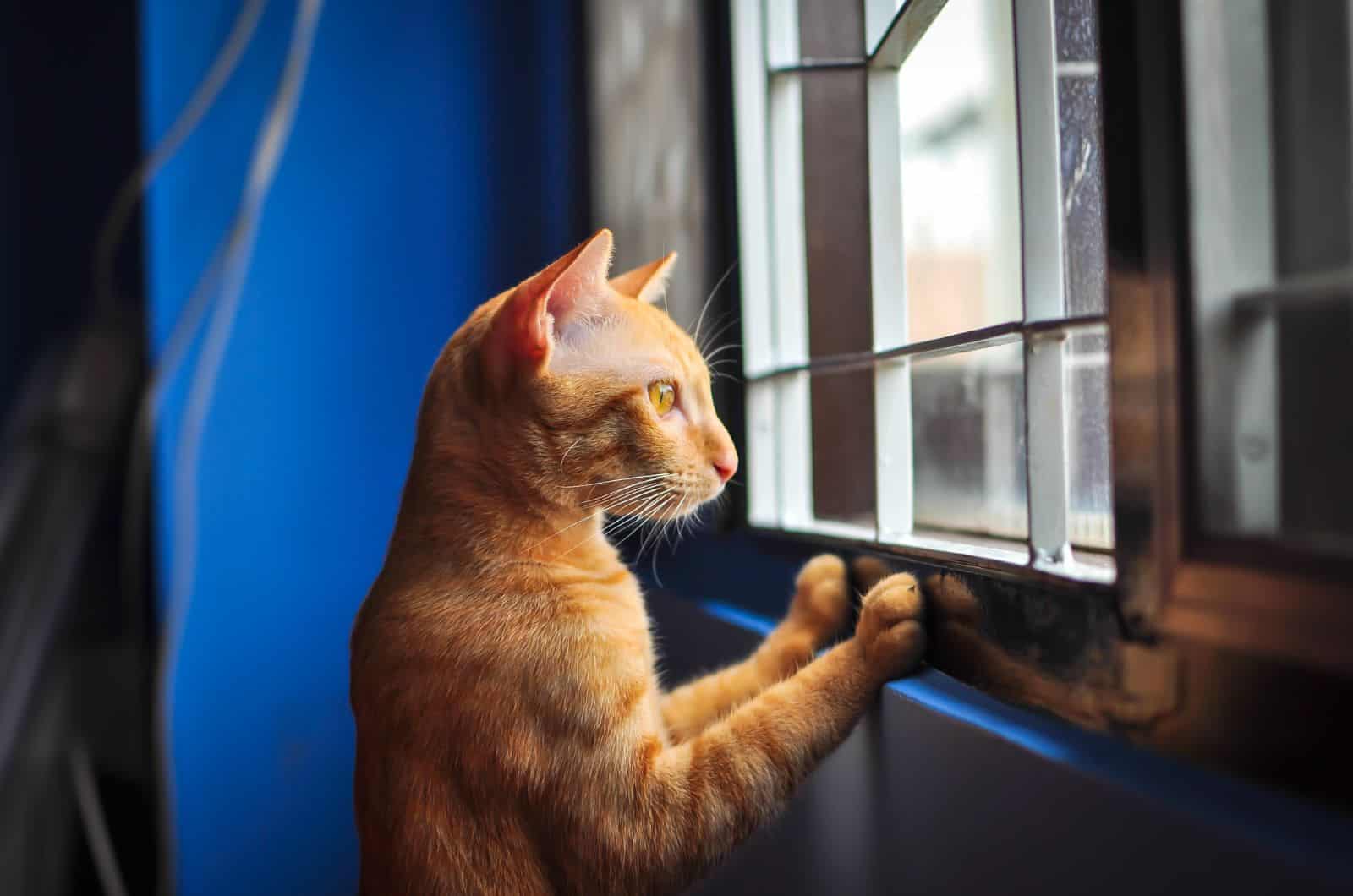
Your cat’s chattering may indicate their excitement at finding what they intuitively perceive as their next meal (or, in the case of our well-fed house cats, perhaps their next “toy”).
Think of it as a feeling you get when you see your food arriving at your table in a restaurant. You get excited about it, right? Cats feel the same way when they see birds, mice, or squirrels in their proximity!
Cats can get excited about the presence of food and the potential chase they might pursue at any second! However, our indoor cats will definitely not be pursuing the prey in our yards.
Frustration
While the pleasure of the chase may cause chattering, there might be another explanation for your cat’s behavior – frustration. Chattering could be a means for them to vent their annoyance at being unable to chase that annoying yet tasty bird.
If a pane of glass separates a cat and its prey, the chattering at the window might be simply displeasure at not being able to reach the prey.
Despite our kitties being domestic cats, they still possess a deadly hunting instinct left over from their wild cat ancestors! In the wild, cats strive to stay as silent as they can while actively pursuing or hunting their prey.
However, when they know they can’t catch their prey, many cats resort to chattering! This supports the claim that our house cats chatter only when they’re aware the prey is out of their reach.
Two Interesting Theories About Why Cats Chatter
I’ve explained that cats chatter due to excitement and frustration, but two other theories claim to explain why felines chatter as well.
1. Kill-Bite Theory
The first theory is the so-called “kill-bite theory.”
According to some experts in animal behavior, the quick jaw motions that cats make while they chatter resemble those of biting. When hunting, cats will bite their prey’s necks. Therefore, when a cat is chattering, the cat may be “practicing” the neck bite.
This theory has a firm stand, as the majority of our cats will chirp at a passing bird outside the window, but not when we’re opening up a can of cat food.
2. Mimicry Theory
The second theory is the mimicry theory, by which wildlife biologists explain that chattering could be a hunting tactic.
While on a field trip in the Amazon rainforest, researcher Fabio Rohe observed a margay, a tiny wild cat, creeping through the underbrush to chase down several pied tamarin monkeys.
The margays then tried to mimic the calls of their prey – a young pied tamarin, which caught the researcher’s attention.
Essentially, the wild cat was imitating monkey noises to attract more pied tamarin monkeys (aka food).
However, this theory doesn’t have such firm grounds, as this theory has never been tested on house cats.
Is Chattering A Form Of Mother-Kitten Communication?
If you read a few articles online about why cats chatter, you might come across some of them mentioning that chattering is a way mother cats communicate with their kittens. However, this is probably untrue.
Cat mothers speak to their young and frequently use a trill or chirp to catch their attention or instruct the kittens to follow them. Although a cat’s chatter may sound similar to a chirp, they are different.
A chatter and a chirp differ in the mouth movement, the sound (although it might be hard to notice), and the motivation behind it.
Calm, comfortable cats typically do chirping, and occasionally those that are even half asleep. In contrast, chattering is done by cats whose predatory instinct has kicked in and who are looking at prey outside their reach.
If you want to hear how a mother cat communicates with her kittens using chirps (and not chatter), then check out this video!
I suggest you compare the sound the cat makes in this video against the sound the three Maine Coons make in the first video in this article. The chattering and chirping noise sound slightly different, right?
Why Do Cats Chatter At Their Owners?
Since chattering is a sign of an awakened predatory instinct, cats probably chatter at their owners because the owners have awakened their cat’s predatory instinct. Now you’re probably wondering how a human could succeed in doing so.
If the cat’s owner is holding a cat toy that looks like prey, like a toy mouse, it’s possible for a cat to start chattering.
Usually, there is no need for concern. Just keep an eye on your pet and stop playing with him if he appears to be about to pounce.
While your domesticated pet knows and loves you, its predatory impulses cannot be suppressed when potential prey is nearby.
Although nothing too dangerous can happen, it might not be good for a cat to attack a toy at full force, and having an aggressive cat around for even a minute can cause a few scratches for the owner!
Therefore, I recommend the owners stop playing with the toy mouse if they notice their cats are getting too aggressive.
When Does A Chattering Cat Become A Problematic Cat?
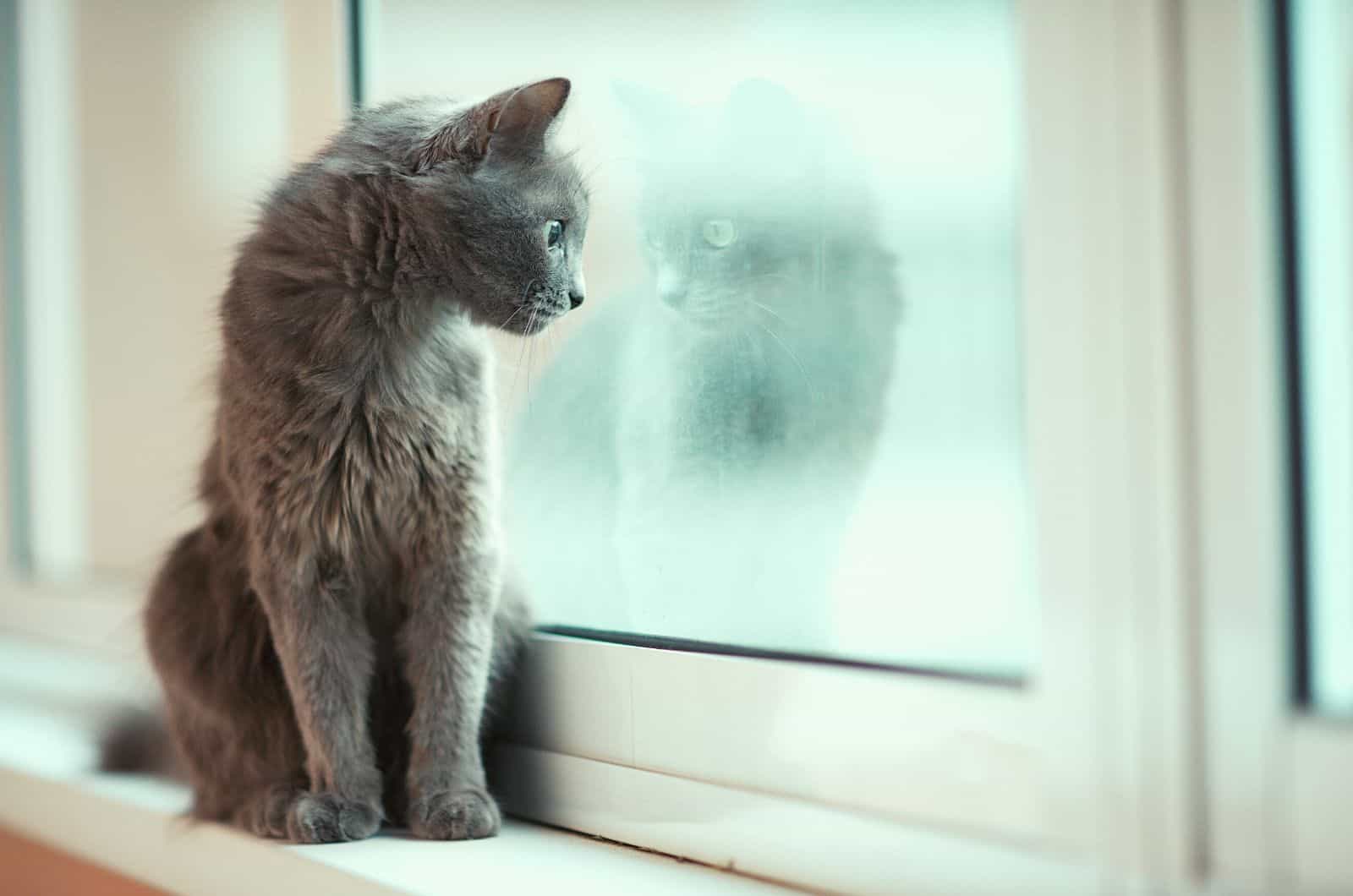
Some cats chatter rarely and may appear to like the thrill of observing prey animals outside.
Chattering cats, however, may also experience overstimulation, irritability, or anxiety, mainly if they are regularly teased with prey they cannot get.
Cats can get very frustrated while attempting to catch an animal that is always out of reach. In house cats, dissatisfaction might result in anxiety.
When they can’t catch the target outside, cats that are feeling overstimulated may start acting in a way known as “redirected aggression”.
What Is Redirected Aggression?
The American Society for Prevention Cruelty to Animals (ASPCA) states that “redirected aggression occurs when a cat is aggressively aroused and agitated by an animal or person he can’t get at” .
They add that the cat then “lashes out at someone—person, dog or cat—who is nearby or who approaches him.”
This kind of misbehavior can escalate and become a bigger issue if ignored.
Pet parents always exercise caution while near a chattering cat that is overstimulated; you don’t want to be wounded if they suddenly turn their predatory tendencies on you.
Redirected aggression is one of the most harmful kinds of cat aggressiveness since the assaults may be startling and dangerous, especially if the bites are unrestrained.
What Should I Do If My Cat Is Always Chattering?
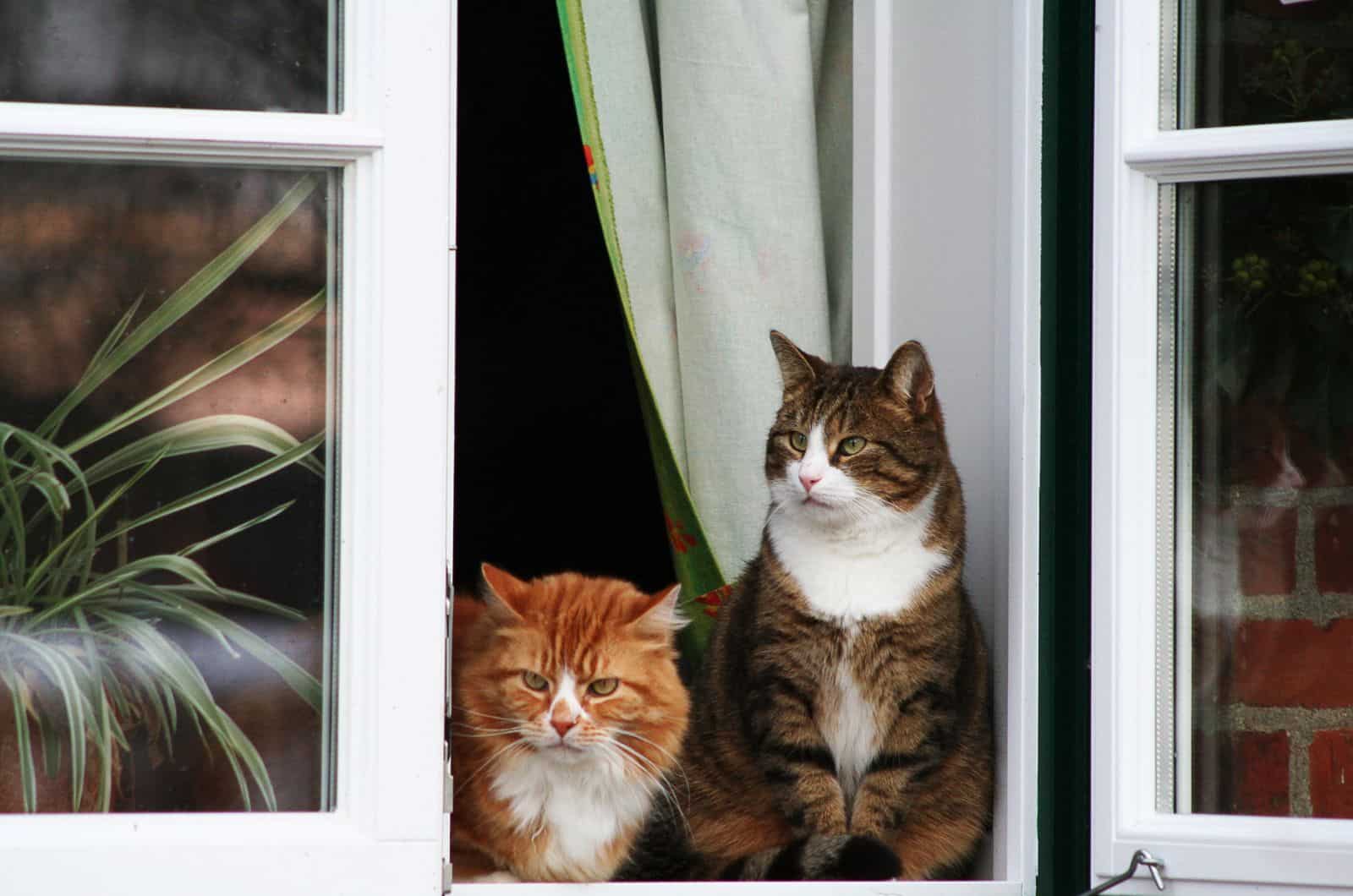
You might be slightly concerned if you notice your cat is chattering more than you’d expect. To make your cat chatter a bit less, you first need to find the cause of the chattering.
Reducing your cat’s chatters then depends on the primary cause of chatter.
1. Find What’s Causing Your Cat To Chatter
Is Prey Being Nearby The Cause Of The Chattering?
Most cats chatter due to having prey in their sights. If your cat is often looking at the window and chattering, that’s a sure sign your cat’s predatory instinct has been awakened.
Perhaps you have a bird feeder, meaning a lot of birds are visiting your yard. In return, your cat is drawn to the window more than usual, and starts chattering at the sight of birds so close-by.
It’s interesting that some cats like looking at birds through the window as a form of entertainment!
Is Something Else The Cause Of Chattering?
Chattering can occasionally indicate a health problem, particularly when the sight of birds or squirrels outside is not stimulating the cat.
If a cat chatters without a clear stimulus, oral discomfort may be the cause. Although cats do not develop cavities, they are vulnerable to tooth resorption, which can wear away the enamel and expose the delicate dentin beneath.
Schedule an appointment with your veterinarian to examine your cat’s mouth if you see your cat chattering without any visual cues to detect dental problems, including foul breath, drooling, spilling food while eating, or loss of appetite.
2. Reduce Your Cat’s Chattering Vocalization Effectively
Now that you’ve found the cause of your cat’s chatter, you can efficiently reduce your cat’s vocalization.
If you’ve concluded that your cat’s chattering is due to prey being in the cat’s sight, the solution is very simple – ensure your cat doesn’t have access to the window or glass door. After your cat has lost the stimulus (the prey’s presence), the chattering should stop.
If you think your cat is becoming overstimulated or agitated, give them toys or puzzle feeders that will let them safely and correctly practice their predatory behavior indoors.
If your cat is chattering without prey as a stimulus, your cat may be dealing with an underlying dental issue. In this case, visiting the vet is the right thing to do.
Dental problems can be very uncomfortable and painful for the cat, so treating them as soon as possible should be a priority.
My Cat Is Never Chattering; Is That An Issue?
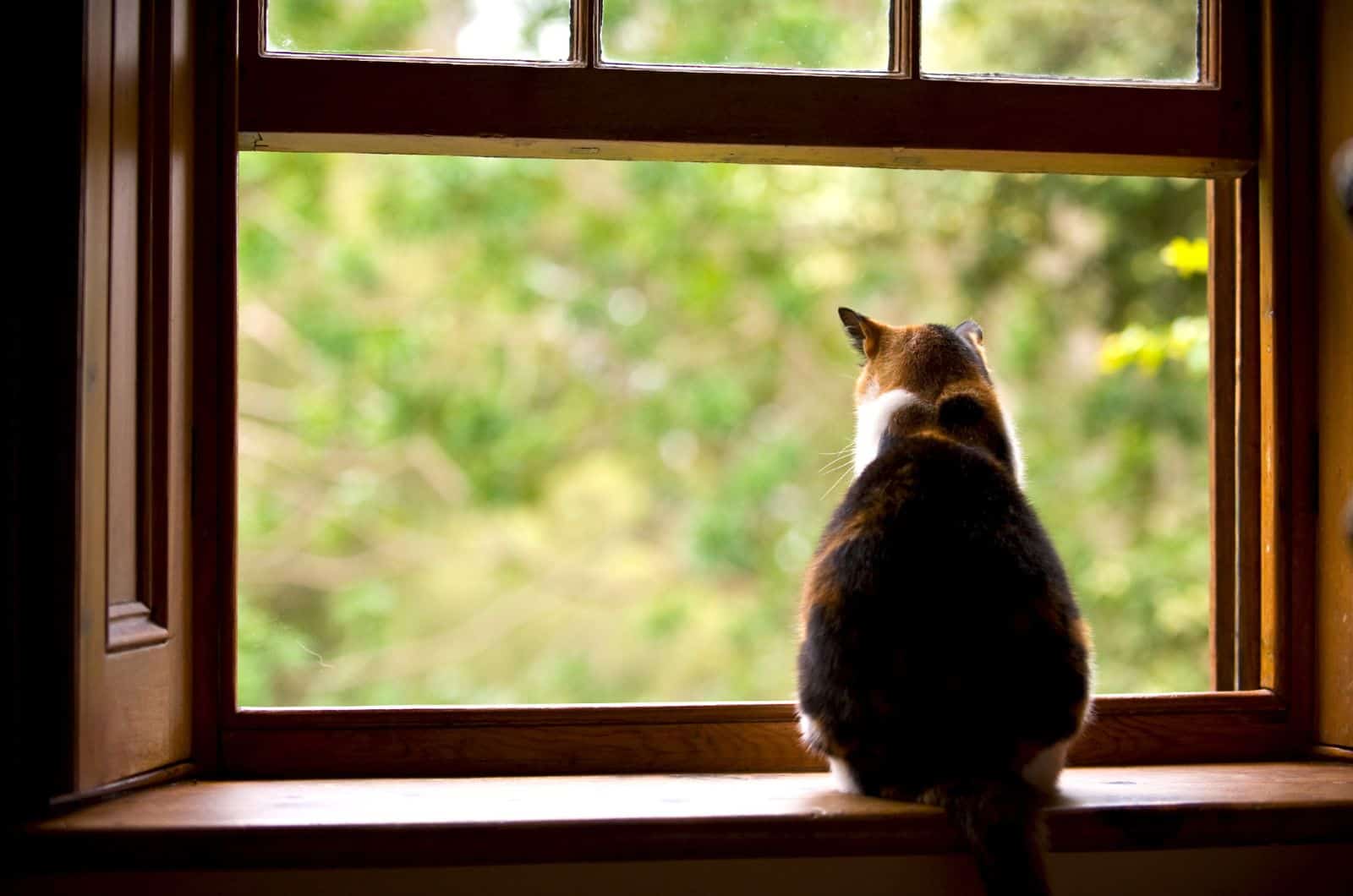
If you’ve never heard your cat chattering, you might be concerned about why your cat isn’t vocalizing in this way. However, there is absolutely nothing you should be worried about!
Your cat not chattering is completely normal. Maybe your kitty has yet to display its chattering abilities! If you want to test whether your cat will chatter or not, there are easy ways to do so.
Testing Your Kitty’s Chattering Abilities
Placing your cat next to the window is the easiest solution to encourage your cat to chatter. If you want to provide your cat with a sight of its natural prey (birds), try placing a bird feeder outside your window.
If you’re not keen on installing a bird feeder in your yard, consider playing bird-watching videos on your TV to get your cat chattering.
Playtime might also make your cat chatter. You’ll need a feather wand, a mouse toy, and perhaps some catnip.
Move the feather wand or toy around the floor while you are across the room from your cat. Before pouncing on the toy, your cat may be seen lurking and chatting.
Giving your cat catnip before your play session may also awaken the cat’s predatory instincts and increase the likelihood of chattering.
Even if your cat doesn’t chatter, no matter how much you test its chattering abilities, there is nothing you should worry about, as the lack of chattering is not indicative of any underlying health issue!
FAQ

What Does Cat Chatter Mean?
A cat’s chatter is a type of vocalization cats usually display when they observe prey but cannot go after it due to confinement (such as being inside a house). If we could translate a cat’s chatter into words, the chatter would mean, “I want to go after that prey!”
Why Do Cats Chatter At Birds?
Cats chatter at birds because birds are a cat’s natural prey. Your cat will frequently be seen chattering at birds while seeing them out of a window. Chattering vocalization is observed only when the cat cannot physically go after its prey, which is valid for a cat looking at the bird from inside the house.
Do Cats Chatter When They’re Happy?
When a cat is happy, you might hear a chirp, but not chatter. Cats display their happiness around people they like by chirping, while chattering is reserved for displaying dissatisfaction, usually regarding prey being out of their reach!
Why Does My Cat Chatter When I Talk To Her?
Some cats chatter at humans during playtime, especially when the owner is holding a toy that resembles a cat’s prey, such as a mouse. Some cat owners report their cats chattering even when playing with laser pointers. On the other hand, some cats chatter when they are upset while trying to communicate with their owners.
Final Thoughts
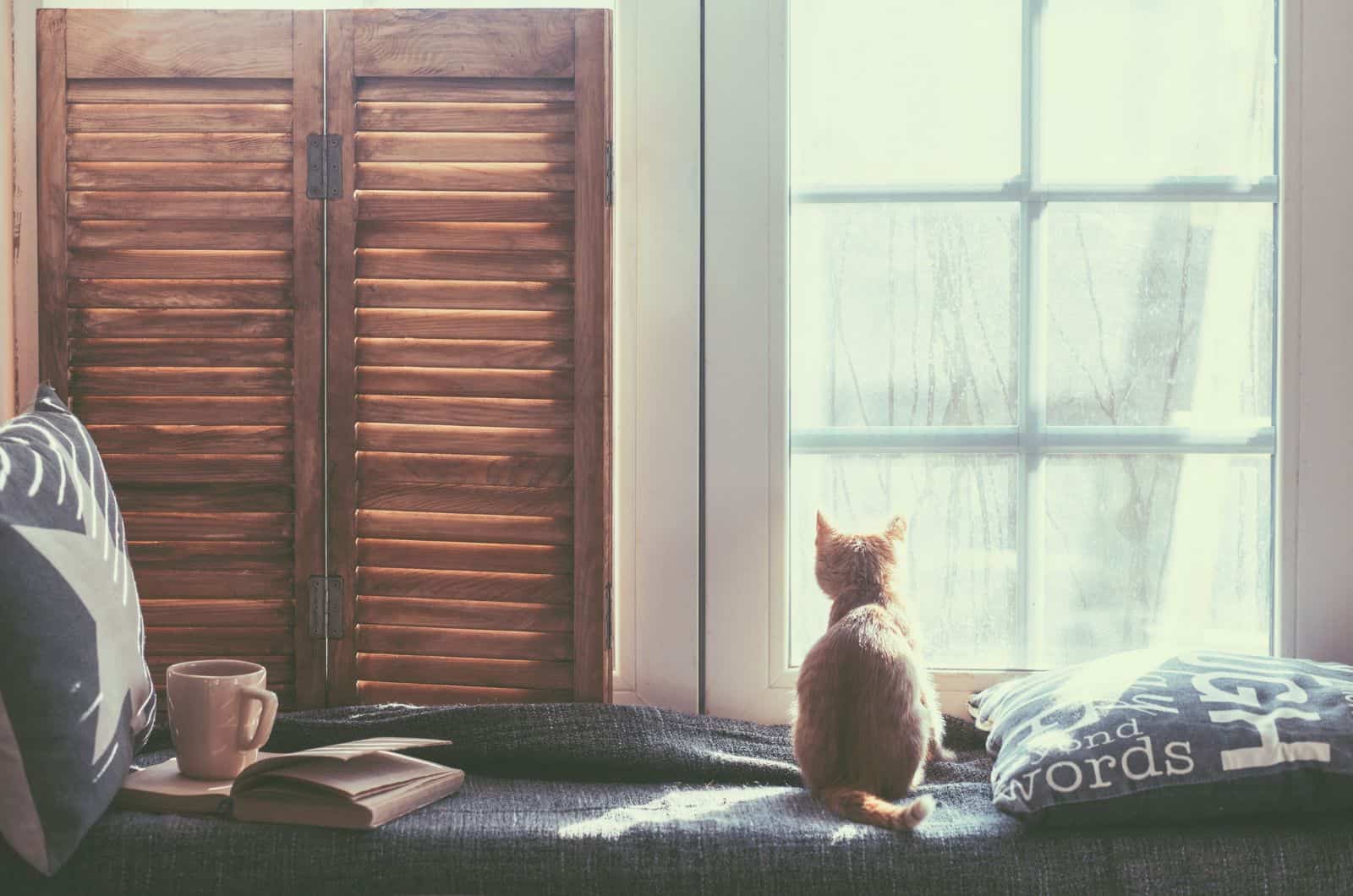
Cats have a wide variety of sounds to express their emotions, including purring to show satisfaction, meowing to greet people, and hissing or yowling to show fear or rage. But why do cats chatter?
Cats chatter when they are interested in prey, and you can usually observe this when a cat sits at the window and looks at birds outside. Cat chattering sounds very similar to cat chirping, but they mean different things, so make sure not to confuse the two!
You will have a better understanding of your feline friend if you pay attention to their body language and vocalization.
Over time, you could get so familiar with your cat’s behavior and vocalization that you won’t need to think twice about what your cat is thinking about!
Know one thing; whenever your furry friend is chattering, it just wants to get that prey, and this cat behavior is instinctive and completely normal!
Related Articles:
Why Do Cats Trill? What Does Cat Trilling Mean? Best Answer

